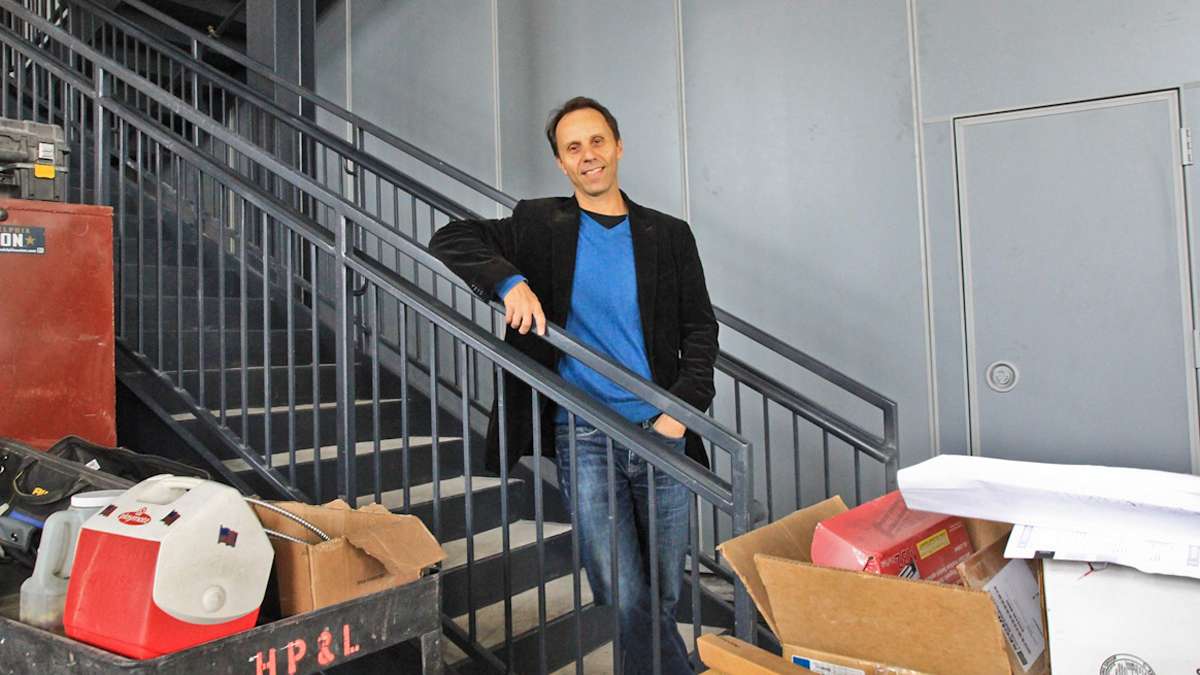Texas-based cancer center takes root in Delaware Valley
ListenCooper University Health Care’s new cancer center opens next week in Camden. The $100 million facility has been years in the making, but it will bear the name of another university’s flagship cancer center, that of MD Anderson, based hundreds of miles away in Texas.
Cooper CEO, John Sheridan, said leaders wanted a partner in providing care at the new center, one that could help expand their research and treatment capabilities. They considered other entities in the region, though Sheridan wouldn’t name names. A year and a half ago, Cooper reached out to MD Anderson, based at the University of Texas in Houston. It boasts of more federal research dollars than any other cancer center in the country and ran about 1,000 clinical trials last year.
“This came at a very pivotal point for MD Anderson,” said Amy Hay, MD Anderson’s vice president for business development.
Hay said MD Anderson was seeking an East Coast presence. The center had already established a similar partnership in Arizona and has also been eying opportunities on the West Coast. Cooper’s large, academic structure appealed to MD Anderson, according to Hay. Financial terms of the partnership were not disclosed, but the two finalized a deal last month.
“Our agreement is that we will follow their methodology, their protocols to the T,” said Sheridan, adding that MD Anderson doctors will be part of the treatment process at Cooper, training medical staff and getting involved at the medical school. Over time, Cooper will take part in Anderson’s clinical trials.
Partnerships ‘sprouting up everywhere’
The partnership is both unusual and a sign of the times, according to Lisa Bielamowicz with the consulting group the Advisory Board Company. (Bielamowicz does not work directly with MD Anderson or Cooper, but both facilities are members of her organization.)
“We’re seeing a lot of consolidation, as hospitals come together to try to take advantage of the benefits of greater scale with contracts and pricing,” said Bielamowicz. “And, more and more, we’re seeing interesting affiliations and partnerships that are trying to scale clinical and operational expertise.”
The Robert Wood Johnson University Hospital and Somerset Medical Center recently signed a merger agreement, which now goes to the state attorney general for review.
Bielamowicz views MD Anderson’s partnerships as “a new breed,” focused more on elevating its expertise at regional centers, as opposed to driving patients back to its own center. Electronic medical records and virtual conferencing, she said, also are making these distant partnerships more viable compared with a decade ago.
The deal, if it plays out as leaders have described it, could bode well very for both MD Anderson and Cooper Health, according Dan Grauman, founder of DGA Partners, an independent Philadelphia-based consulting firm.
“By establishing these strategic collaborations throughout the country, MD Anderson is getting access to new patients, and they need patients to be able to do their clinical trials for the development of new cancer treatment modalities and drugs and pharmaceuticals,” said Grauman.
New Jersey hospitals, meanwhile, have struggled to keep patients from migrating out of state for treatment.
“When patients are diagnosed with cancer and want to go to a premiere organization, they don’t have to go far over the river to go to one of the well-established cancer treatment centers in Philadelphia,” said Grauman. “What this kind of affiliation potentially does for Cooper is give them a marquee, a brand that they’re now affiliated with, as well as cancer treatment protocols and the ability for patients to participate in clinical trials, which is always important in trying to establish a cancer center.”
But Lawton Robert Burns, who researches health systems at the University of Pennsylvania’s Wharton School of Business, warns that the success of such a partnership will depend on MD Anderson’s real presence in Camden over time and whether it actually leads to better care.
“Part of this is marketing,” said Burns. “We’ll have to wait and see just how much substance there is.”
Burns said partnerships of varying kinds “are sprouting up everywhere,” but after peeling back the aggressive advertising, some only involve one or two doctors training at an affiliated center.
WHYY is your source for fact-based, in-depth journalism and information. As a nonprofit organization, we rely on financial support from readers like you. Please give today.





